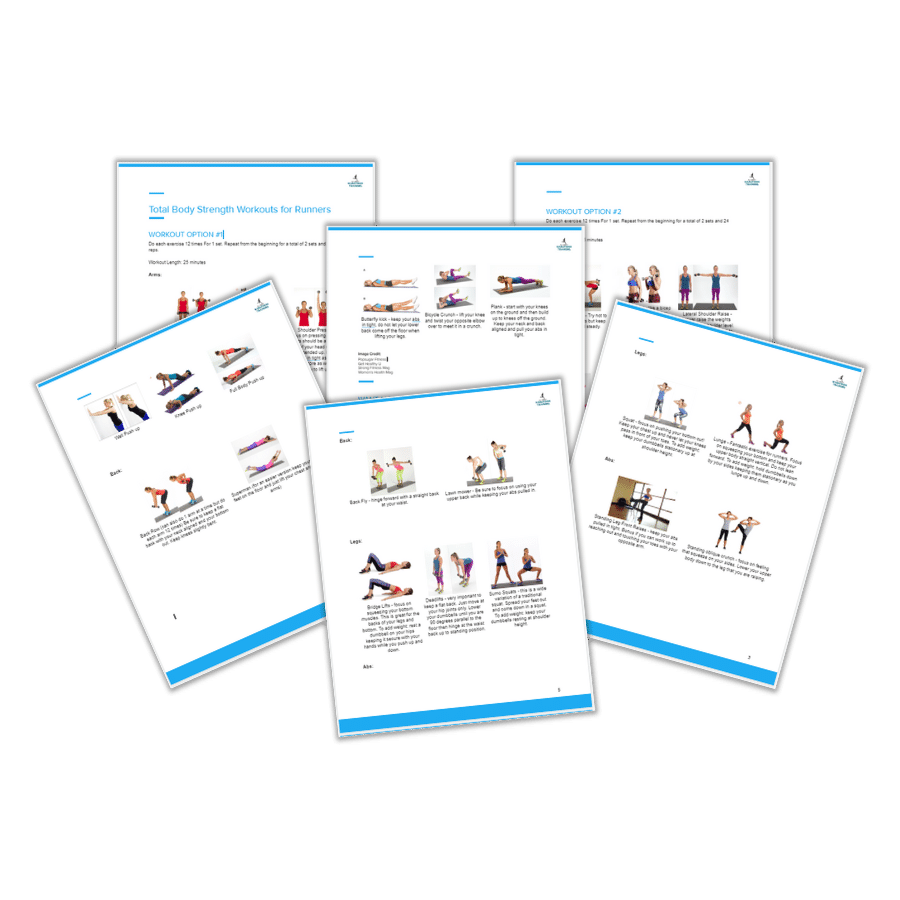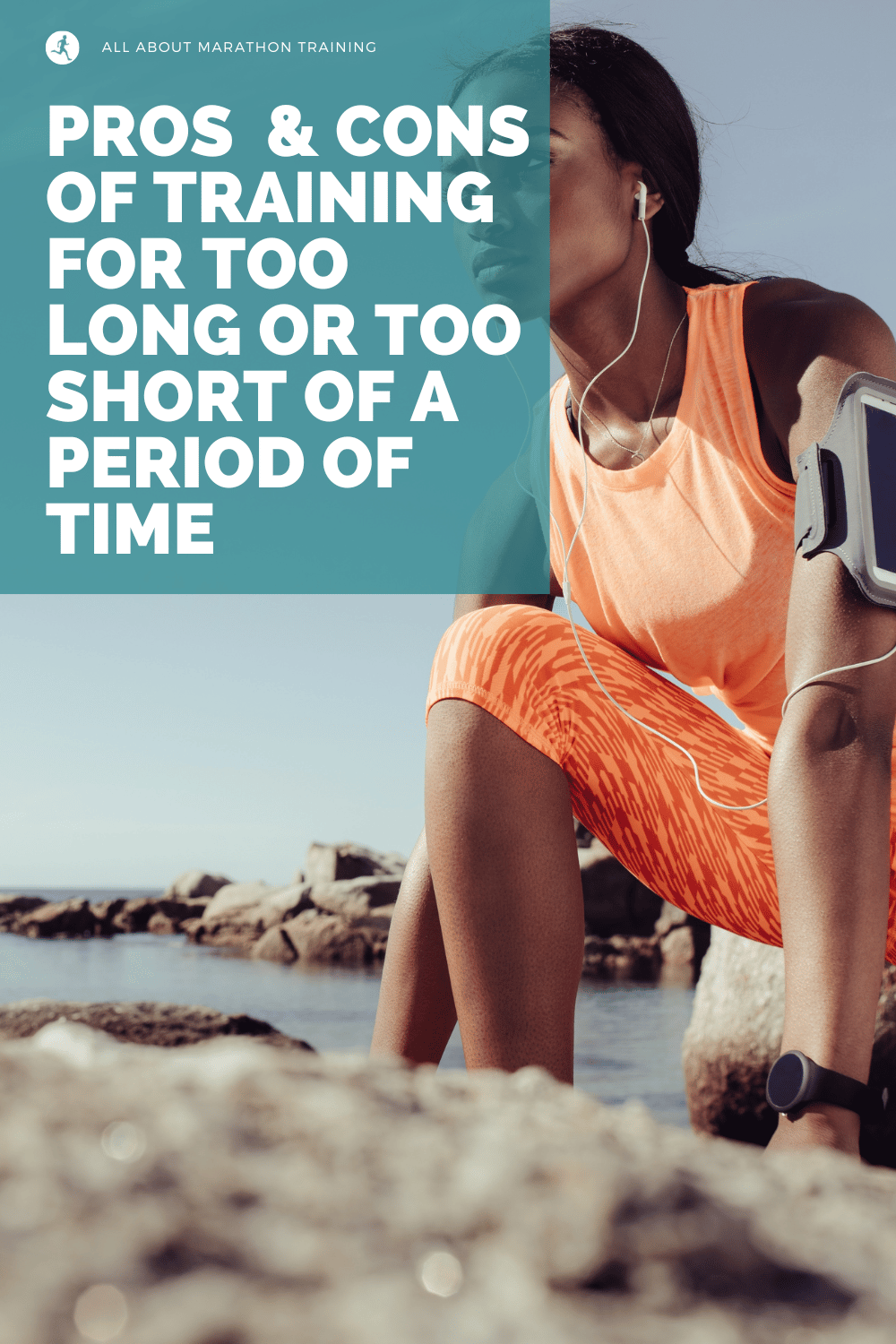The Marathon: How Long Should You Train?
How long should you take to train for a marathon?
This can be such a subjective question from runner to runner.
There are many factors that will come into play when you are deciding how many weeks you should block off for your training.
Here are some considerations that might come into play:
- Your running “age” or fitness level. Have you been a runner for a long time or a short time?
- If you are new to running have you consistently exercised for a period of time or is this your first dip in the exercise/running realm?
- Have you ever run a marathon before? A half marathon? A 10K?
- When was your last run?
- When was your last race?
- How does your body feel?
- Is this a recreational marathon race or are do you want to break a time goal?
And this list could go on and on and on. This is where a running coach can really help you pinpoint the best training duration for you on a personal level.
However, in general most marathon training plans last between 16 to 20 weeks.
This seems to be the sweet spot in allowing your body to really adapt to your training, build endurance, speed, and strength while staying healthy and avoiding injury.
The biggest factor that will come into play in choosing the length of your training plan though will always be: your fitness level.
When to start your training for a marathon
This will of course be determined by your race date but here is where you will have to use a sense of reason in determining exactly when to start.
In general the higher your running fitness level, the less time you need to devote to your training.
If you have recently run a half marathon then you might need less time for training than if you have never run more than 6 miles.
It’s also going to depend on whether this is THE race of your year.
You do not want to be tackling aggressive marathon race goals more than once or twice a year.
If this is a “fun” race where you are not trying to set a PR then you may need less time than if you wanted to really break new ground in your goals.
Negative Effects of Training for too Short of a Period of Time:
- Not having enough time to adapt to your training, build endurance and peak properly
- Harder to avoid injury if you are pushing yourself at a rate that is too fast
Negative Effects of Training for too Long of a Period of Time
- Peaking too early in your training and then not being in peak condition for your race.
- There is no sense of urgency and so it is easy to blow off your training runs and not take it seriously
How many training cycles should make up your marathon training + how long should they each be?
If this is your first marathon then you might simply focus solely on building your endurance through long runs once a week and base/aerobic building runs during the week to boost your running volume.
This would be perfect for the recreational or bucket list marathoner who wants to get the job done without pain. ;)
If you want to become more technical in your running and have time goals for yourself or just want to get faster and feel stronger then you will probably follow a 3 phase marathon training plan.
These 3 training phases are commonly referred to using different names however I like to refer to them as:
- base training
- quality training
- peak training.
Other coaches might refer to these as aerobic training, intro training, fundamental training, hill and speed training, and sharpening.
Your Base Training:
Base training is usually a period of time where on focuses on building aerobic and cardio-vascular fitness.
This phase usually lasts anywhere between 2 -10 weeks.
This phase can be longer or shorter depending on your current running fitness level.
During this phase you will probably not do much if any quality workouts such as hill training, sprints, speed training, intervals etc.
It will be focused more on building your base mileage while slowly increasing your long run mileage.
Your Quality Training Phase
Your quality training phase will begin to include running workouts that will help you push that needle towards your goals.
Here you will see more hill and speed training workouts scheduled to help build your running strength, running speed, and speed endurance all while focusing on your long runs.
This phase usually lasts between 8-12 weeks.
Your peak training phase
Your peak training phase gets you race ready, fine tunes your body, and gets you prepared to run at your highest level.
This also usually includes a rest period known as the taper.
This phase usually lasts about 4 weeks including your 1-2 weeks of tapering.
Your “peak” training week is the hardest week of your training with the most specific marathon race workouts.
Usually this week is scheduled 2 weeks prior to your marathon race date.
For example, in most of our Time Goal Training plans, Week 14 (out of a 16 week training schedule) is your “peak week” of training. You perform a race specific interval workout, a tempo run, and a long run that includes goal-race pace running.
This allows your body to reach it’s full potential before you begin your taper weeks leading into the marathon.
Your tapering phase
Tapering is the reduction in training load (volume or amount of training and intensity) in order to achieve peak performance prior to a race.
A good taper period usually lasts about 2 weeks. Depending on your level, intensity and goals that you set for yourself it could be only 1 week or it might be slightly longer.
These are all general guidelines that can always be modified to best fit each runner and their goals.
There are no hard set rules to follow however a good sense of judgment will always serve you best!
How I like to determine my marathon training length
For myself personally, if I was running a Fall marathon (usually in October) I would begin training in June.
If I was planning on running a spring (April) marathon, I would begin training December or January. I prefer Fall marathons as I would rather take the heat of the summer than the snow and cold of the winter to train in!
My recommendations for most other runners:
In general I recommend at least 20 weeks for a beginner marathoner and at least 16 weeks for a more experienced marathon runner.
Here on All About Marathon Training, I offer a range of training plans that span the length of 12 weeks to 52 weeks!
This makes it easier for runners to find and modify the one that aligns the most with their goals.
That being said, you can find all of our marathon training plans on this page!
Related Pages:
👋Sign up to receive the free printable strength exercises for runners: 👇
 |
As featured on:











New! Comments
Have your say about what you just read! Leave me a comment in the box below.